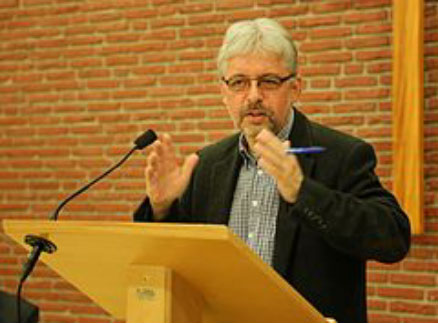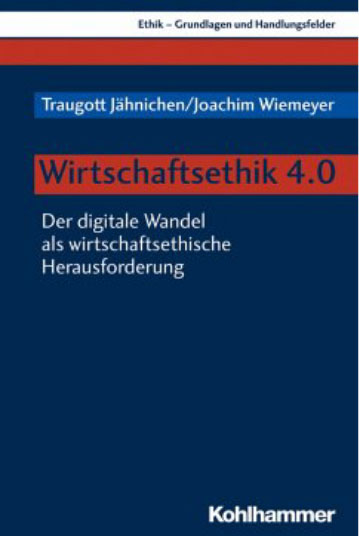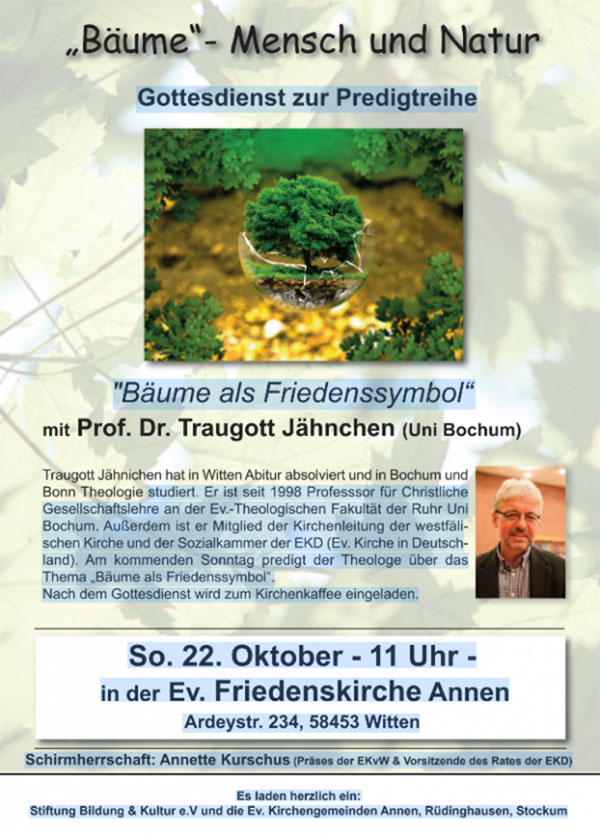Traugott Jähnichen

Paul S. Chung’s Interview with Prof. Dr. Traugott Jähnichen
**버클리 인터내셔널 공공신학 포럼 센터(IPTFC)**는 독일 보훔 대학 개신교 신학부와 베를린 훔볼트 공공신학 센터와의 협력을 통해 “종교와 시민사회 그리고 사회생물학: 공공신학의 관점”이라는 주제로 2026년 서울 인터내셔널 컨퍼런스를 준비 중이다. 이에 참여하는 해외 석학들과의 인터뷰를 소개한다.
공공신학은 교회와 신학윤리가 사회 정치 경제적 그리고 사회문화적 이슈에 대해 책임을 다할 수 있도록 폭넓은 관점을 제공하는 신학적-철학적 그리고 사회과학적 노력으로 정의 된다. 이는 종교적 신념을 바탕으로 공론장의 문제를 탐구하고 사회 윤리적 지침을 제공 하는 데 중점을 둔다.
Paul Chung takes the opportunity to interview Prof. Dr. Traugott Jähnichen at Evangelisch-Theologische Fakultät Ruhr Universität Bochum, Germany. Our International Public Theology in Forum is excited to work together with Prof. Jähnichen in the near future to promote public theology and democracy of civil society, eco-justice, and integrity of the life-world.
PTFC는 독일 보훔에 위치한 루르대학교 신학부의 트라우고트 예니헨 교수님과 인터뷰를 진행했다. 인터뷰에서는 공공신학과 시민사회의 민주주의, 생태정의, 그리고 생활세계의 온전성에 대한 심도 있는 논의가 이루어졌다. 버클리 포럼-센터는 예니헨 교수와의 협력을 통해 이러한 주제들을 더욱 발전시키고 실천해 나갈 계획이다.
예니헨 교수는 루르대학교 신학부에서 기독교 사회학을 가르치고 있으며, 경제윤리, 사회적 프로테스탄티즘의 역사, 복지국가에서 종교의 역할 등을 연구하고 있다. 그의 연구는 기독교 신앙이 현대 사회에서 어떻게 공공선을 추구할 수 있는지에 대한 깊은 통찰을 제공한다.

Today’s situation of crisis becomes acute in the Ukraine war and the pathology of late capitalism in a neoliberal economic system, as was brought by the capitalist revolution (Helmut Gollwitzer).
Prof. Jähnichen specializes in the field of Christian Social Theory and economic ethics, and teaches this academic discipline in connection with ethical basic relations and in terms of social institutions. His research project is featured as cross-disciplinary and an intercultural engagement across a diverse spectrum.
Jähnichen involves dialogues with sociology and other human sciences to emphasize ethical responsibility and renew social structure in accordance with the biblical prophetic tradition of Christian faith, confronting crises and challenges of today’s global situations.
오늘날의 위기 상황은 우크라이나 전쟁과 신자유주의 경제 체제에서 나타나는 후기 자본주의의 병리 현상으로 더욱 심각해지고 있다. 이는 ‘자본주의 혁명’(헬무트 골비처)이 가져온 결과이다. 미·중 간의 무역 전쟁 또한 세계 체제로서 자본주의가 일으킨 혁명이 자본 축적의 사이클에서 드러나는 역발 현상으로 볼 수 있으며, 국제 정치에 위험과 위기로 등장한다.
예니헨 교수는 기독교 사회 이론과 경제 윤리 분야를 전문으로 하며, 윤리적 기본 관계와 사회 제도와 연결하여 학문 분야를 가르친다. 그의 연구 프로젝트는 다양한 분야를 아우르는 학제 연구이자 문화 참여로 특징된다.
예니헨 교수는 사회학 및 기타 인문 과학과의 대화를 통해 윤리적 책임을 강조하고, 오늘날 글로벌 상황에서 위기와 도전에 맞서 기독교 신앙과 성서의 예언자적 전통에 따라 사회 구조를 새롭게 하는 데 관심을 기울이고 있다.
Along with the marching progress of globalization, technological rationality and its achievement prevail by undergirding the functional differentiation of society. Western society is characterized in its cultural pluralism and racial hierarchy within social stratification (seen in current immigration politics in USA and Europe and the sociobiological revival of old social Darwinism).
Given this, it is a pressing issue for Christian Social Theory to take into account social integration of late modern society. Christian social ethics needs to incorporate significance of the world and life in accordance with Biblical witness and Christian tradition, bringing its power of social formation and ecological sustainability into effect.
세계화의 진전과 함께 기술 합리성과 성취가 사회의 기능적 분화를 뒷받침하며 지배적인 흐름으로 자리잡고 있다. 서구 사회는 문화적 다원성과 사회 계층 내 인종의 위계 구조로 특징되며, 이는 미국과 유럽의 현재 이민 정책과 사회생물학적 관점에서의 구(舊) 사회다윈주의의 부활에서도 확인된다.
이러한 상황에서 후기 근대 사회의 사회적 통합을 고려하는 것은 기독교 사회 이론에서에 시급한 과제가 된다. 기독교 사회 윤리는 성서적 증언과 기독교 전통에 따라 세상과 삶의 중요성을 통합하고, 사회 형성과 생태적 지속 가능성의 힘을 실현해야 한다.

Appreciation
Traugott Jähnichen is committed to actualizing Christian sociology and embodying Christian faith as praxis of discipleship in the public sphere of late modern industrial society, as well as challenging neo-liberal systems of world economy. He brings the ethical tradition from Martin Luther to Helmut Gollwitzer into a prophetic profile of social Protestantism; the grace of justification cannot be understood without its social ethical consequences. His contribution consists of ethics of world economy and prophetic Diakonia of the church for civil society, democracy and social justice.
예니헨 교수는 후기 근대 산업 사회의 공공 영역에서 기독교 사회학을 실천화하고, 제자직의 실천으로서 신앙을 구현하며, 신자유주의 세계 경제 체제에 도전하는 데 관심한다. 그는 마르틴 루터에서 헬무트 골비처에 이르는 윤리 전통을 사회적 프로테스탄티즘의 예언적 프로필로 재구성하며, 칭의의 은혜는 사회 윤리적 결과 없이 이해될 수 없다고 강조한다. 그의 기여는 세계 경제윤리와 교회의 예언적 디아코니아를 통해 시민사회, 민주주의, 사회정의를 실현하는 데 중점을 둔다.
Publications (recent works select)
Die Ethik Martin Luthers, Bielefeld 2017 (gemeinsam mit Wolfgang Maaser)
Dietrich Bonhoeffer – Life and Legacy, Traugott Jähnichen/Pascal Bataringaya/Olivier Munyansanga/Clemens Wustmans (Eds.), Zürich 2019
Wirtschaftsethik 4.0. Der digitale Wandel als wirtschaftsethische Herausforderung, Stuttgart 2020 (gemeinsam mit Joachim Wiemeyer)
Overcoming Violence. Challenges and Theological Responses in the Context of Central Africa and Europe, edited by Pascal Bataringaya/Claudia Jahnel/Traugott Jähnichen/Penine Uwimbabazi, Zürich 2021
Ecological Justice. Churches as civil-society-stakeholders: perspectives from Africa and Europe, hg. von Claudia Jahnel und Traugott Jähnichen, Oer-Erkenschwick 2022
Evangelischer Glaube in der pluralen Religionskultur der Moderne. Fundamentaltheologische Perspektiven, Stuttgart 2023

Interview: Traugott Jähnichen and Public Theology
Clarification: Christian Social Ethics and Ethical Theology
You are an expert in the field of Christian Social Theory (CST), which is concerned with the ethical relation in dealing with social institutions and exploring a possibility of new social formation. Would you give us more explanation about an interdisciplinary character of CST and its ethical evaluation? What differentiates CST from ethical theology (Trutz Rentorff), which is known in American academies? How does Christian sociology take issue with a generically deterministic view of human life justifying racial injustice, sexism, and social cultural inequality (Richard Dawkin’s selfish genes and E. Wilson’s Sociobiology)?
해명: 기독교 사회 윤리와 윤리 신학
교수님은 기독교 사회 이론(CST) 분야의 전문가입니다. CST는 사회 기관을 다룰 때 윤리적 관계를 연구하고 새로운 사회 형성의 가능성을 탐구하는 분야입니다. CST의 학제적 특성과 윤리적 평가에 대해 더 자세히 설명해 주시겠습니까? 미국 학계에 알려진 윤리 신학과 CST의 차이점은 무엇인가요? 기독교 사회학은 인간의 삶을 결정론적으로 바라보며 인종 차별, 성차별, 사회 문화적 불평등을 정당화하는 견해(리차드 도킨스의 <이기적 유전자> 와 에드워드 윌슨의 <사회생물학>)에 대해 어떻게 문제를 제기합니까?
Traugott
Christian social theory or more precise: Christian social ethics reflects the institutional aspects of human action. It is less about, as in ethical theology, showing the anthropological dimension of action and its theological background beliefs. Rather, Christian social ethics wants to draw attention from a critical perspective to the fact that and how historical constellations, social structures or cultural knowledge shape people's self-image and their relationships with other people and the world around them. It is about critically measuring these conditions against the standard of the Gospel and making the normative impulses of the Bible, in particular the basic attitude of loving one’s neighbor and the biblical conception of justice, fruitful in society. Racism, social Darwinist concepts, sexism, classism or ableism must be deconstructed from this perspective and overcome through appropriate impulses for action.
기독교 사회 이론 또는 더 정확하게 말하자면 기독교 사회 윤리는 인간 행동의 제도적 측면을 반영합니다. 그것은 윤리 신학에서처럼 행동의 인류학적 차원과 신학적 배경을 보여주는 것과는 다릅니다. 대신, 기독교 사회 윤리는 비판적 관점에서 역사적 구도, 사회 구조 또는 문화적 지식이 사람들이 자신을 어떻게 인식하고 다른 사람들과 세계와의 관계 를 어떻게 형성하는지에 주목 합니다. 그것은 이러한 조건들을 복음의 기준에 비추어 비판적으로 측정하고, 성서의 규범적 충동, 특히 이웃 사랑의 기본 태도와 성서의 정의 개념을 사회에서 결실을 맺을 수 있도록 하는 것과 관련됩니다. 인종차별주의, 사회 다윈주의 개념, 성차별주의, 계급주의 또는 능력주의는 이러한 관점에서 해체되어야 하며, 적절한 행동의 충동을 통해 극복되어야 합니다.
Relevance: Christian Social Ethics and Public Theology
How do you relate CST to public theology? In American context, public theology has a diverse spectrum in its approach to the public sphere in civil society, common good governance, and theology of nature, recognition of multiculturalism, or religious pluralism among others. How do you characterize CST in regard to public theology, civil democracy, and dialogue with other religions?
연관성: 기독교 사회 윤리와 공공 신학
기독교 사회 윤리(CST)를 공공 신학과 어떻게 연관 지을 수 있을까요? 미국의 상황에서, 공공 신학은 시민 사회에서 공적 영역, 공동선의 거버넌스, 자연 신학, 다문화 주의 또는 종교다원주의에 대한 인식 등 다양한 접근 방식을 가집니다. 기독교 사회 윤리를 공공 신학, 시민 민주주의, 그리고 다른 종교들과의 대화와 관련하여 어떻게 특징 지을 수 있을까요?
Traugott
Christian social ethics is an important part of “public theology” or public Christianity. While “Public Theology” reflects all of the effects of Christianity in the public sphere – including in the area of culture – the task of CSE is primarily aimed at bringing socially relevant impulses from Christian responsibility into the areas of politics and economics. Networks in civil society are therefore just as relevant as interreligious dialogues.
기독교 사회 윤리는 “공공 신학” 또는 공공 기독교의 중요한 부분입니다. “공공 신학”은 기독교가 공적 영역에서 미치는 모든 영향을 반영하며, 문화 영역도 포함됩니다. 반면, 기독교 사회 윤리의 주요 임무는 기독교의 책임감을 바탕으로 사회적으로 중요한 충동을 정치와 경제영역에 전달하는 데 있습니다. 따라서 시민사회의 네트워크는 종교 간 대화 만큼이나 중요합니다.
Interaction: Local and Global Contexts
How do you view the dialectical relationship between the local or contextual responsibilities for the public theology, while contributing to the wider context of global political, economic, and communication forces? How would you, a Christian sociologist and public theologian, participate in your local issues as well as an ecumenical commitment?
상호작용: 지역과 글로벌 콘텍스트
공공신학에 대한 지역 또는 상황적 책임과, 글로벌 정치, 경제, 그리고 소통의 힘에 기여하는 더 넓은 맥락 사이의 변증법적 관계를 어떻게 보시는지요? 기독교 사회학자이자 공공 신학자로서, 지역 문제에 어떻게 참여하며 동시에 에큐메니칼적 헌신을 어떻게 실천하십니까?
Traugott
Ethical reflection always has to reflect on its contextual conditions and develop answers to the challenges of specific regional and national contexts. Since these are often determined by the transnational or global level (particularly when it comes to economic and ecological issues), it is necessary to include this level in both the analysis and the recommendations for action, in a bottom-up model. Ecumenical and interreligious contacts are anchored and relevant in the regional world. At the (trans)national level, the global institutions for such cooperation and dialogue must be strengthened and the work should be made more concrete through references to regional levels.
윤리적 성찰은 항상 상황의 조건을 반영하고 특정 지역과 국가의 맥락에서 도전 과제에 대한 답을 개발해야 합니다. 이러한 맥락들은 종종 초국적 또는 글로벌 수준에 의해 결정되기 때문에 (특히 경제와 생태문제와 관련하여), 이러한 수준을 분석하고 행동을 위한 권고에 모두 포함시킬 수 있어야 합니다. 이것은 보톰업 모델을 통해 이루집니다. 에큐메니칼 협력과 종교 간의 접촉은 지역 세계에 뿌리를 두며, 그 중요성이 있습니다. 초국가적 수준에서는 이러한 협력과 대화를 위한 글로벌 기관들이 강화되어야하며, 이러한 작업은 지역 수준에 대한 언급을 통해 더욱 구체화되어야 합니다.
Faith as Praxis of Discipleship
How do you articulate the significance of faith as praxis of discipleship for the public sphere in global situations (for instance, Ukraine war and crisis or legitimacy of late capitalism in a global system of the world economy). In American context I find it significant to develop public theology in dealing with racial issues, neo colonialism. and politics of recognition (Charles Taylor). How would you conceptualize these problems from the standpoint of Christian Social Theory?
제자직의 실천으로서의 믿음
글로벌 상황에서 공적 영역에 대한 제자직의 실천으로서 믿음의 중요성을 어떻게 설명 하십니까? (예를 들어, 우크라이나 전쟁과 위기, 또는 세계 경제 체제에서 후기 자본 주의의 정당성 등). 미국의 상황에서는 인종 문제, 신식민주의, 그리고 인정정치를 다루는 공공신학을 개발하는 것이 중요합니다. 기독교 사회 이론의 관점에서 이러한 문제들을 어떻게 개념화하십니까?
Traugott
Christian faith influences not only personal but also public life. In modern, pluralistic societies, a central challenge is to promote a deeper form of tolerance, i.e. not only to tolerate other religions and world views, but to recognize them as long as they respect basic human rights. If the rights of others are questioned or rejected, as racist positions do, this must be resolutely contradicted and defended through laws.
Through partnerships between churches in the Global North and the Global South, ecumenical learning must be promoted that enables mutual enrichment in intercultural exchange and the development of joint social and ecological projects.
기독교 신앙은 개인적인 삶뿐만 아니라 공적 삶에도 영향을 미칩니다. 현대의 다원적 사회에서 핵심적인 도전 과제는 더 깊은 형태의 관용을 촉진하는 것입니다. 다른 종교와 세계관을 단순히 용납하는 것에 그치지 않고, 기본적인 인권을 존중하는 한 그것들을 인정하는 것입니다. 만약 다른 사람들의 권리가 의심이 되거나 거부되는 경우, 예를 들어 인종차별적 입장처럼, 이는 단호히 반박되고 법을 통해 방어되어야 합니다.
글로벌 북반구와 글로벌 남반구의 교회들 간의 파트너십을 통해, 서로 다른 문화 간 교류에서 상호 간의 풍요로움이 가능해집니다. 공동의 사회 생태적 프로젝트 개발을 촉진하는 에큐메니컬 학습이 증진되어야 합니다.
Contribution
Our International Public Theology in Forum-Center (IPTFC) is based on the global network and ecumenical church relations, promoting public theology and social scientific studies of civil democracy and life-world to engage with science-religion dialogue, life-sciences, and ecological sustainability. Would you explain what kind of contributions you would foster in collaboration with us? What kind of programs does your school have or plan to strengthen international exchanges?
기여
IPTFC은 글로벌 네트워크와 에큐메니컬 교회 관계를 바탕으로 공공신학과 시민 민주주의, 생활세계에 대한 사회 과학적 연구를 촉진합니다. 버클리 포럼 센터는 과학과 종교 간의 대화, 생명과학과 생태학적 지속 가능성을 위해 협력을 촉진합니다. 이에 대해 여러 학자들과 협력하여 어떤 기여를 할 수 있을지 설명해 주실 수 있겠습니까? 또한, 귀 학교에서 국제 교류를 강화하기 위한 프로그램이나 계획이 있다면 무엇인지 궁금합니다.
Traugott
The Ruhr University Bochum promotes the concept of sustainability, and all faculties contribute to it. There have been projects on ecological justice in the Protestant Theological Faculty for several years. Specifically, it is about questions of ecological justice in the dialogue between churches and universities in the North and the South. The question of justice for non-human creatures also plays an important role. I could contribute these aspects to the Seoul conference in 2026.
보훔대학은 지속 가능성 개념을 촉진하며 모든 학부가 이에 기여하고 있습니다. 개신교 신학부에서는 수년 동안 생태정의에 대한 프로젝트가 진행되었습니다. 구채적으로는 북반구와 남반구의 교회와 대학 간 대화에서 생태정의문제를 다루는 것입니다. 비인간 생물에 대한 정의의 문제도 중요한 역할을 합니다. 저는 이러한 측면을 2026년 서울 컨퍼런스에서 기여할 수 있습니다.